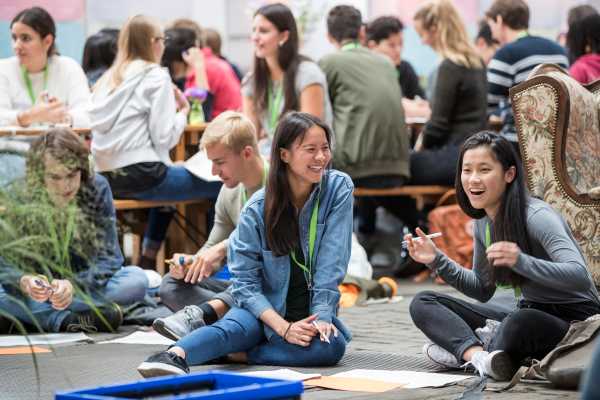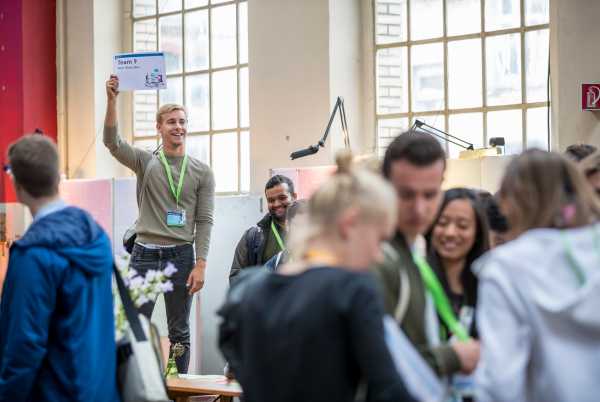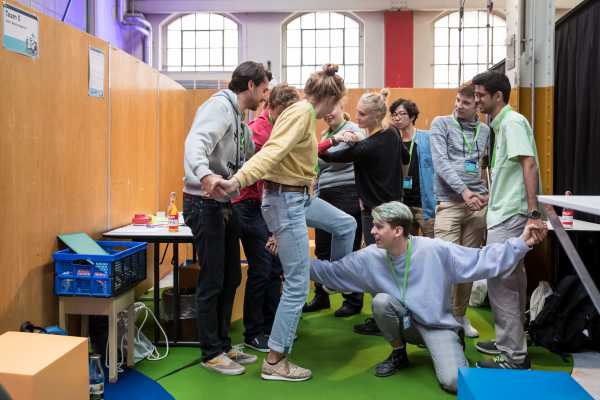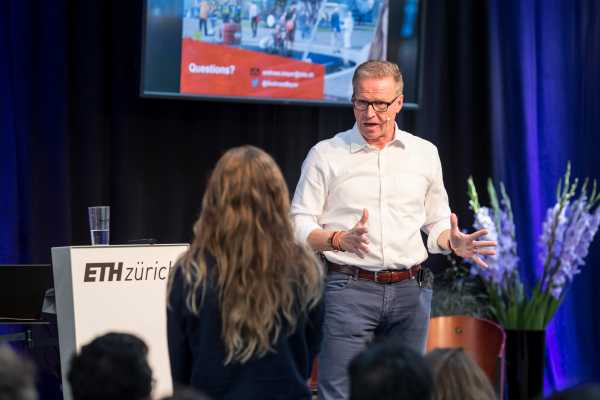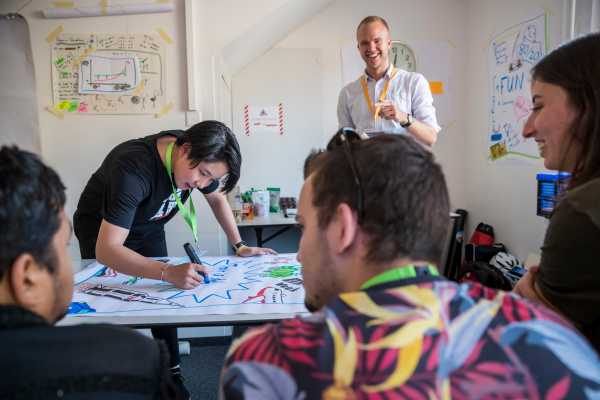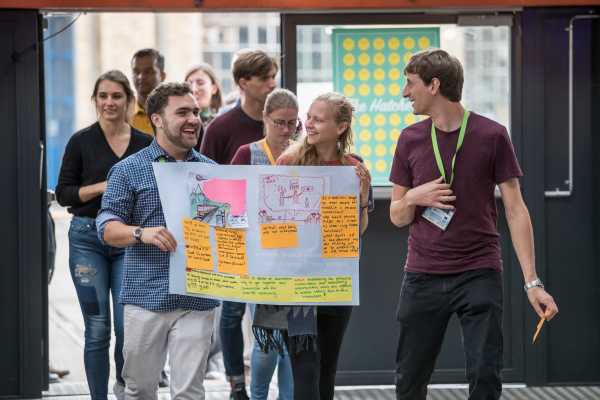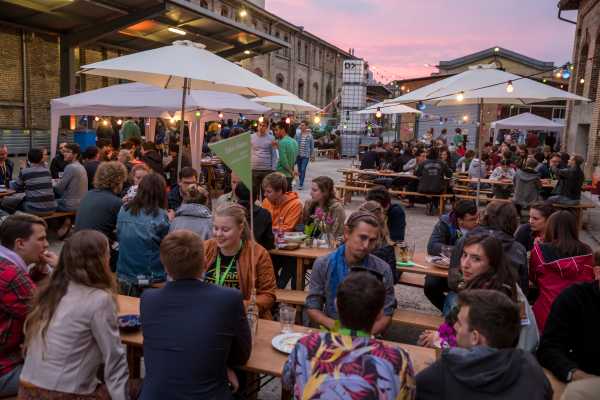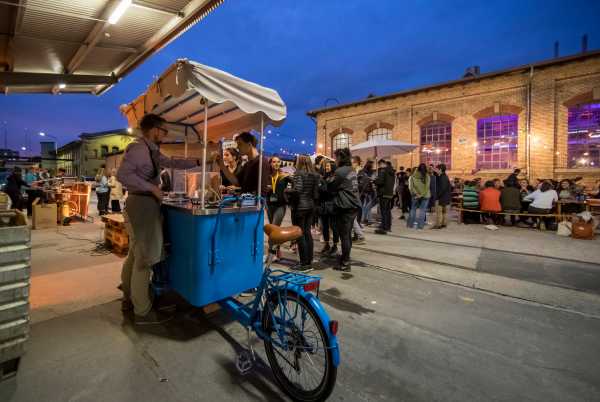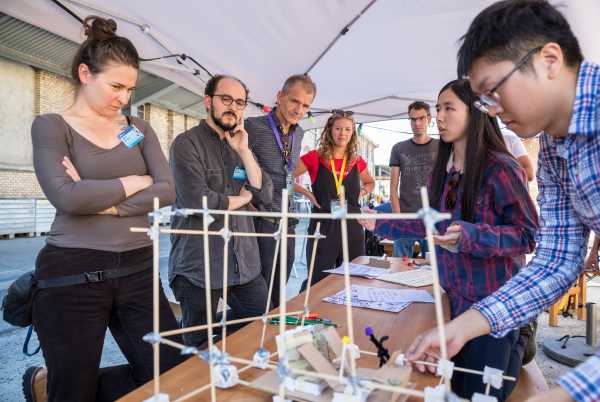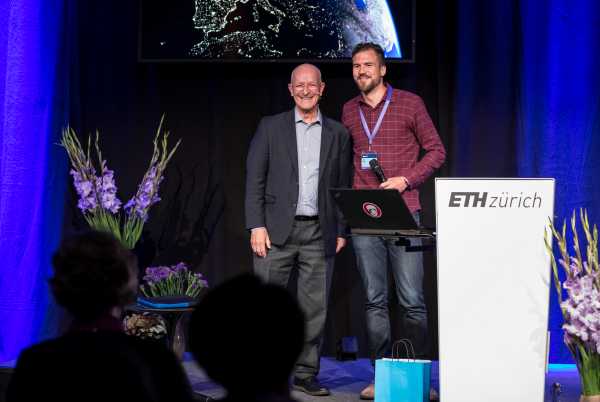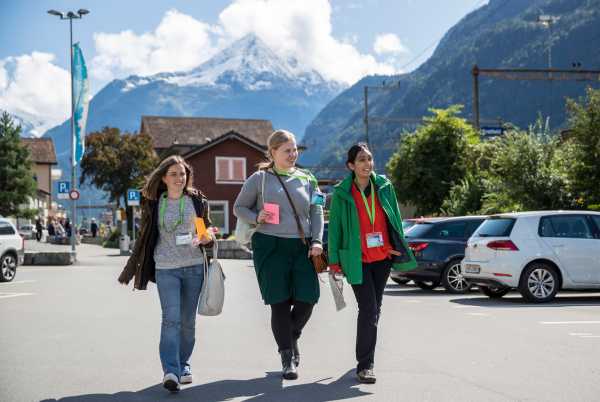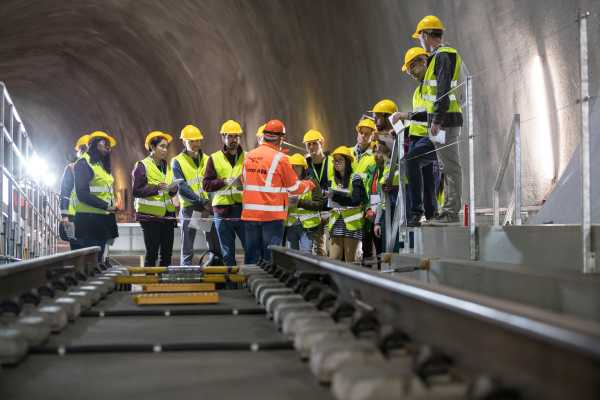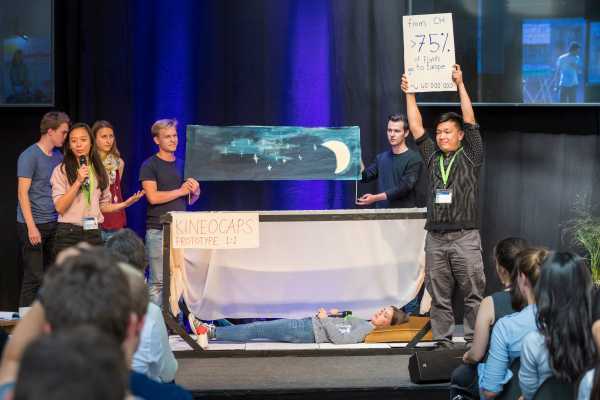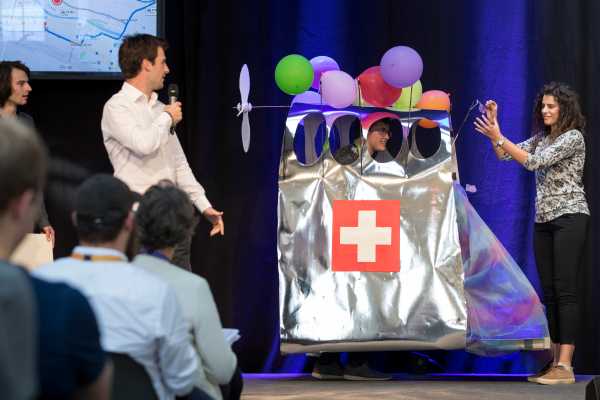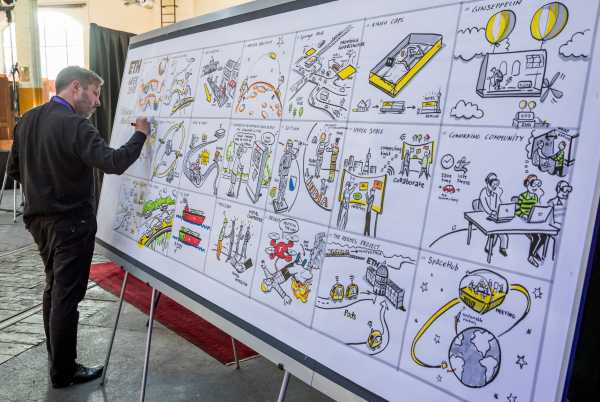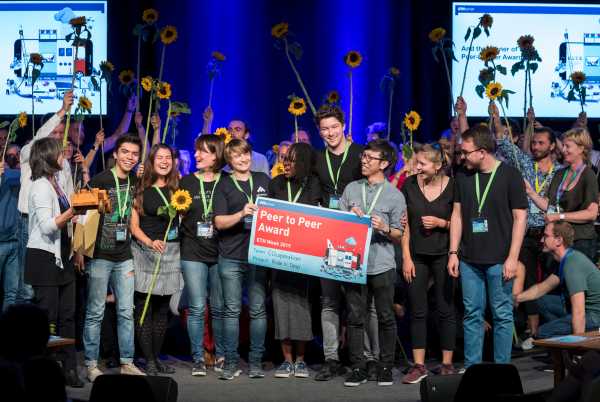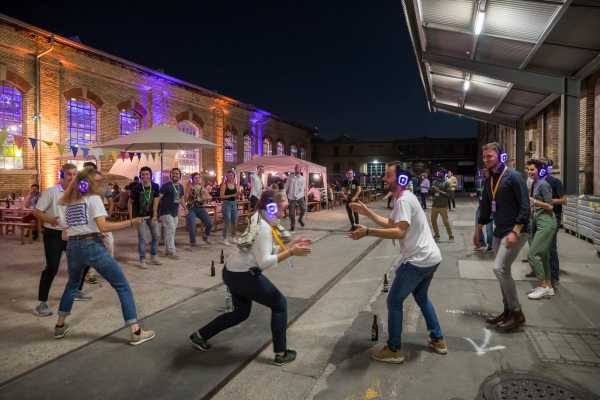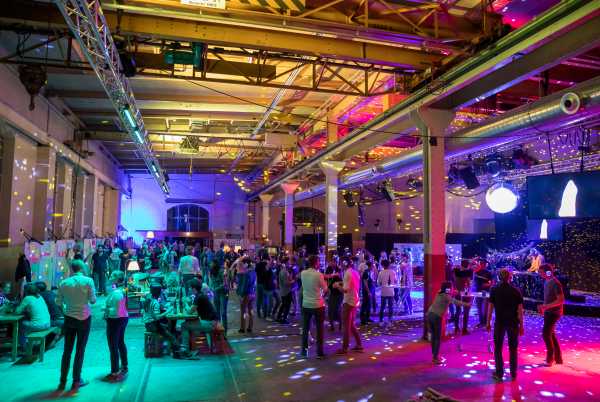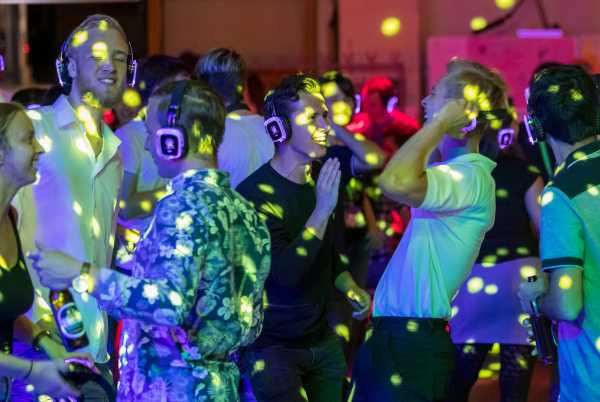Rethinking Mobility (2019)
Mobility allows us to connect with people and make friends from all over the world, and it brings communities and cultures together. In our globalized world we enjoy a great deal of flexibility in choosing where to live, work, and spend our free time. But we are already beginning to pay the price: Worldwide, the growing energy consumption that powers our mobile lifestyle is one of the main causes of climate change. At the local level, many people suffer from declining air quality, congestion, and overcrowded trains and buses.
The development of sustainable mobility systems requires critical thinking and transdisciplinary cooperation between people from different backgrounds. Therefore, we invited all participants in the fifth edition of ETH Week to think outside the box and reconceptualise the future of mobility:
What are our requirements for the mobility system of the future? How will we travel in 2050? Will our cars, ships, and even airplanes run on fuels synthesised using only sunlight or other renewable sources? How can we better integrate spatial planning, new technologies, and social innovation to meet people's needs more sustainably?
ETH Week 2019 was about moving and connecting people. It was a challenge, but also an opportunity for critical thinking and creativity, for innovation, and for interdisciplinary teamwork.
Meet the teams of 2019:
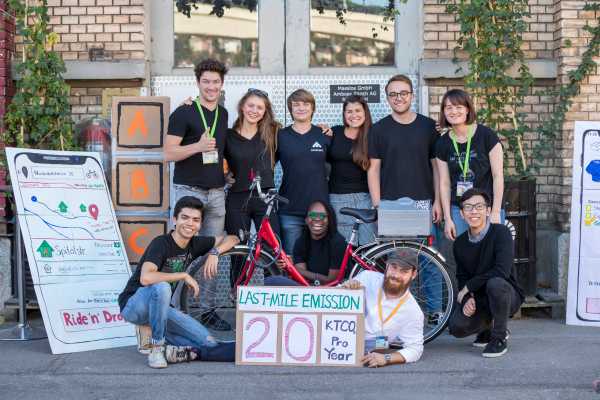 Team 11. In order to tackle the problem of natural mineral depletion on earth, project Space-Shipping Co. suggests mining asteroids and transporting the resources from space stations to earth via solar-powered space elevatorsTeam 11.
Team 11. In order to tackle the problem of natural mineral depletion on earth, project Space-Shipping Co. suggests mining asteroids and transporting the resources from space stations to earth via solar-powered space elevatorsTeam 11.
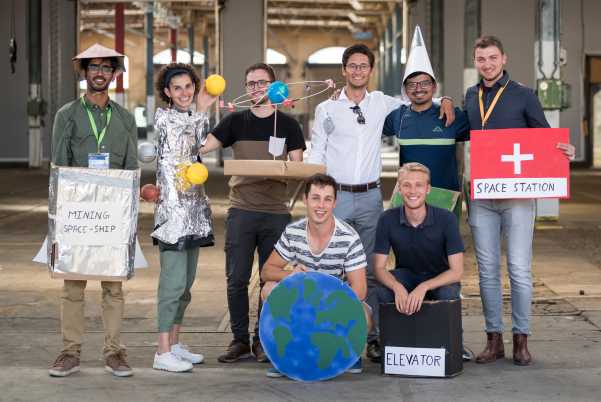 Team 19. Electric cars don’t fulfil the need for long distance trips, which hinders the transition to electric mobility. Project Hive Charge proposes an energy distribution system that enables cars to physically connect and share their charge.
Team 19. Electric cars don’t fulfil the need for long distance trips, which hinders the transition to electric mobility. Project Hive Charge proposes an energy distribution system that enables cars to physically connect and share their charge.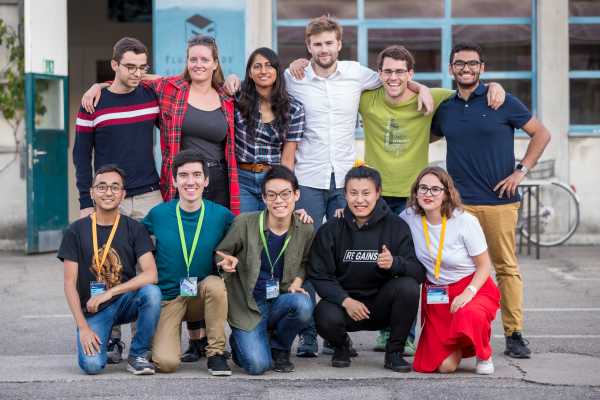 Team 14. Project CO-2-Flush takes us to the year 2060 when humans colonized Mars. To move goods and people on Mars while avoiding harsh conditions on Mars’ surface, they suggest moving the goods in underground tubes by a flushing principle.
Team 14. Project CO-2-Flush takes us to the year 2060 when humans colonized Mars. To move goods and people on Mars while avoiding harsh conditions on Mars’ surface, they suggest moving the goods in underground tubes by a flushing principle.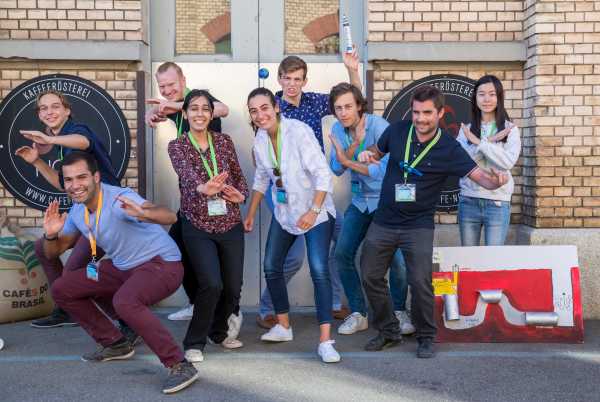 Team 18. Current means of transport are too slow for intercontinental meetings on a tight schedule. Project Spacehub proposes a coworking space in space, reached by sustainably fueled rockets in half an hour, orbiting Earth every two minutes.
Team 18. Current means of transport are too slow for intercontinental meetings on a tight schedule. Project Spacehub proposes a coworking space in space, reached by sustainably fueled rockets in half an hour, orbiting Earth every two minutes.
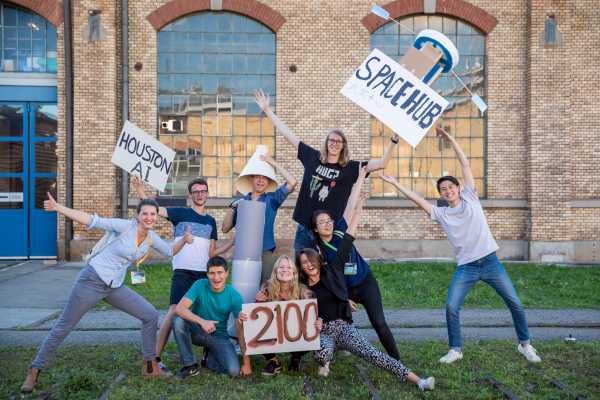 Team 9. ETH has committed to reduce emissions from business air travel by 11 % in 2025. "Conference on Rails" proposes European conferences on moving trains, reducing CO2 emissions while maintaining important face-to face interaction.
Team 9. ETH has committed to reduce emissions from business air travel by 11 % in 2025. "Conference on Rails" proposes European conferences on moving trains, reducing CO2 emissions while maintaining important face-to face interaction.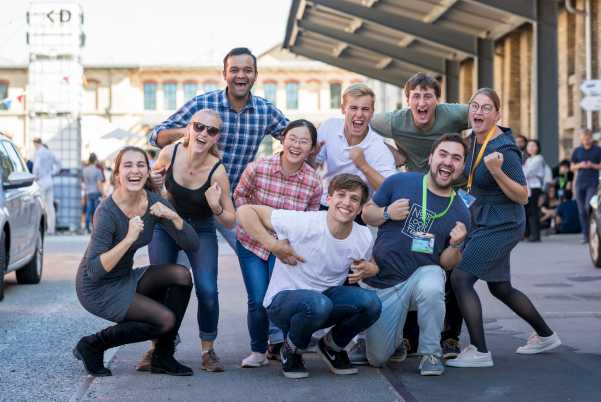 Team 4. To overcome the problem of overcrowded and delayed public transportation, project Beltblaster proposes an electric people conveyer belt with a “hop-on, hop-off” system in major city hubs.
Team 4. To overcome the problem of overcrowded and delayed public transportation, project Beltblaster proposes an electric people conveyer belt with a “hop-on, hop-off” system in major city hubs.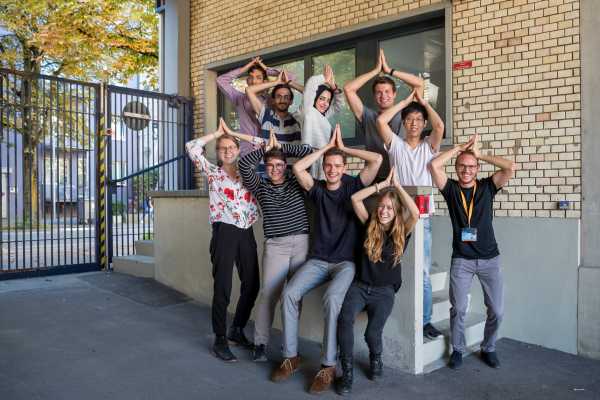 Team 16. Project Martian Ballistics suggests transporting cargo from point A to point B on infrastructure-poor Mars by exploiting the lower air resistance and gravitational pull: by a catapult!
Team 16. Project Martian Ballistics suggests transporting cargo from point A to point B on infrastructure-poor Mars by exploiting the lower air resistance and gravitational pull: by a catapult!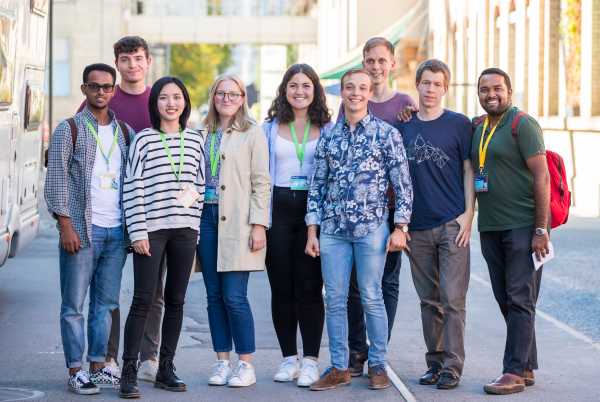 Team 20. In order to integrate individual autonomous vehicles in the cities’ infrastructure and avoid congestion, project SpongeHub creates transport hubs that serve as an interaction point between autonomous private and public transport.
Team 20. In order to integrate individual autonomous vehicles in the cities’ infrastructure and avoid congestion, project SpongeHub creates transport hubs that serve as an interaction point between autonomous private and public transport.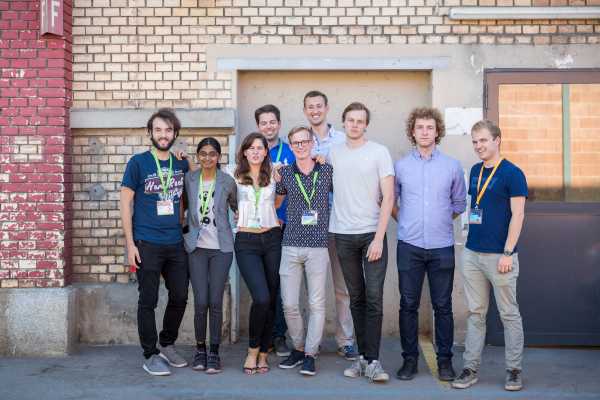 Team 13. Project Kineo Caps aims to replace plain trips and address rising demand of night trains with stackable, highly comfortable Japanese-inspired hotel capsules, that are loaded on trains and form hotels at the destination.
Team 13. Project Kineo Caps aims to replace plain trips and address rising demand of night trains with stackable, highly comfortable Japanese-inspired hotel capsules, that are loaded on trains and form hotels at the destination.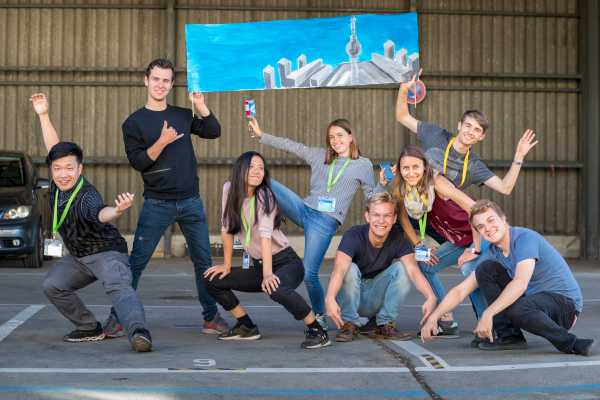 Team 15. Current infrastructure on the ground is overcrowded. That’s why project Giuseppelin suggests a personal flying device, powered by a hybrid human-electric propulsion system, to commute more time-efficiently and sustainably.
Team 15. Current infrastructure on the ground is overcrowded. That’s why project Giuseppelin suggests a personal flying device, powered by a hybrid human-electric propulsion system, to commute more time-efficiently and sustainably.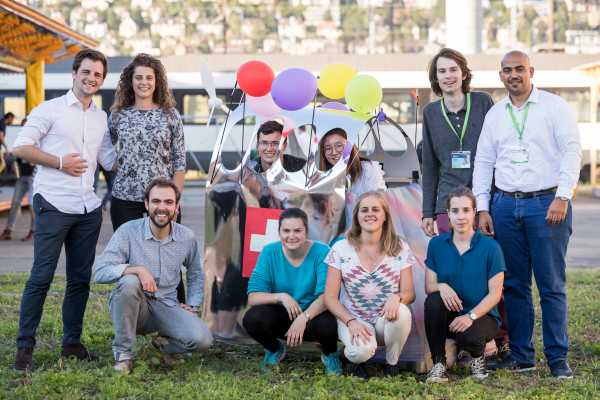 Team 1. In order to avoid travel and destruction of coral reefs, project adVentuRe proposes Virtual Reality technology that simulates all five senses, providing a perfect adventure at home.
Team 1. In order to avoid travel and destruction of coral reefs, project adVentuRe proposes Virtual Reality technology that simulates all five senses, providing a perfect adventure at home.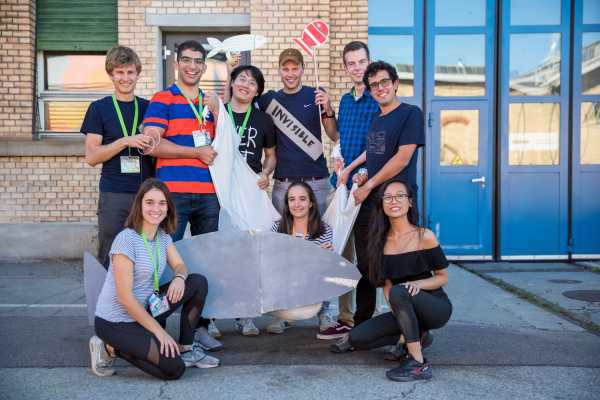 Team 8. Project CARGO (Centralised Autonomous Routesearch for Grandmas and Opas) aims at integrating elderly people into the current public transportation system by adapted ticket machines based on vocal interaction.
Team 8. Project CARGO (Centralised Autonomous Routesearch for Grandmas and Opas) aims at integrating elderly people into the current public transportation system by adapted ticket machines based on vocal interaction.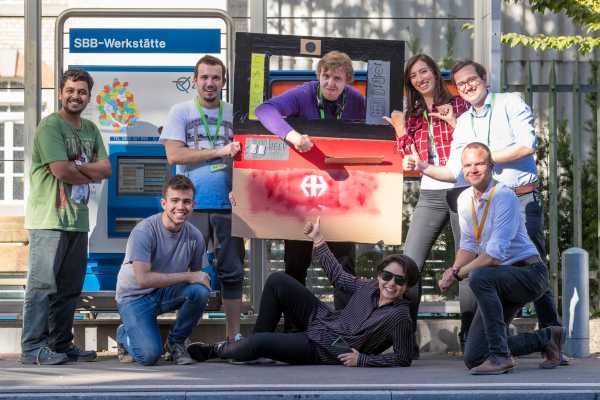 Team 12. Project SUITable makes it possible to stay at home but still interact emotionally with people abroad. A haptic suit is connected to a customized robot abroad, which mimics the person wearing the suit and gives an all-senses feedback.
Team 12. Project SUITable makes it possible to stay at home but still interact emotionally with people abroad. A haptic suit is connected to a customized robot abroad, which mimics the person wearing the suit and gives an all-senses feedback.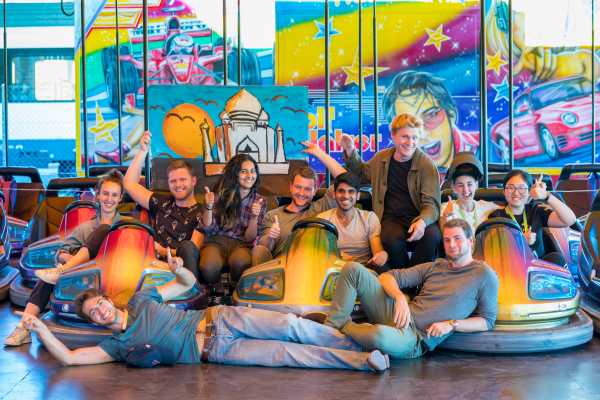 Team 6. More than 60 % of employees in Zurich spend 20% of their productive time commuting. Project LEGOffice suggests decentralizing workplaces by creating coworking spaces in rural areas where employees live.
Team 6. More than 60 % of employees in Zurich spend 20% of their productive time commuting. Project LEGOffice suggests decentralizing workplaces by creating coworking spaces in rural areas where employees live.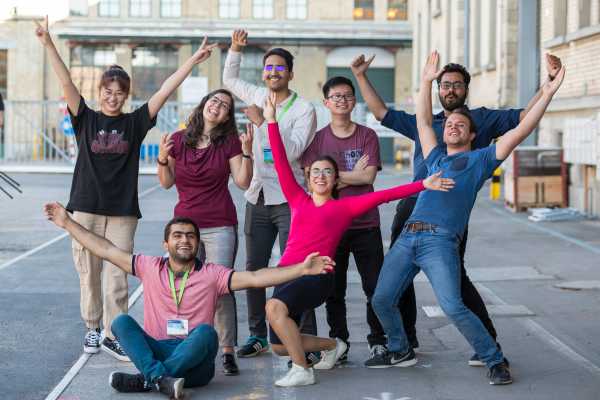 Team 17. Many companies are located outside of cities, thus struggle to recruit the best talent. Project Hyper Space proposes high-tech offices that seamlessly connect employees at different locations using augmented reality.
Team 17. Many companies are located outside of cities, thus struggle to recruit the best talent. Project Hyper Space proposes high-tech offices that seamlessly connect employees at different locations using augmented reality.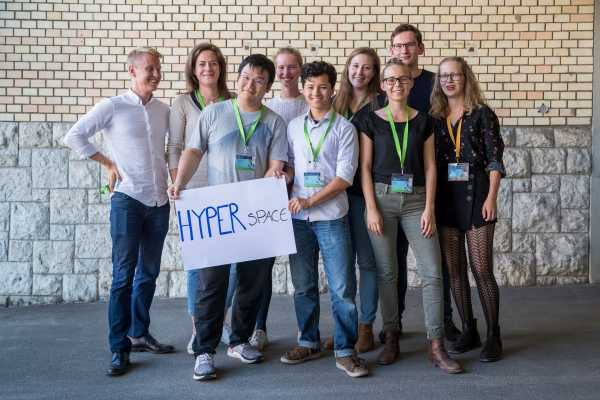 Team 5. To eliminate commuting time and improve working motivation, project Coworking Community proposes new co-working spaces close to employees’ home, equipped with the latest teleworking technology.
Team 5. To eliminate commuting time and improve working motivation, project Coworking Community proposes new co-working spaces close to employees’ home, equipped with the latest teleworking technology.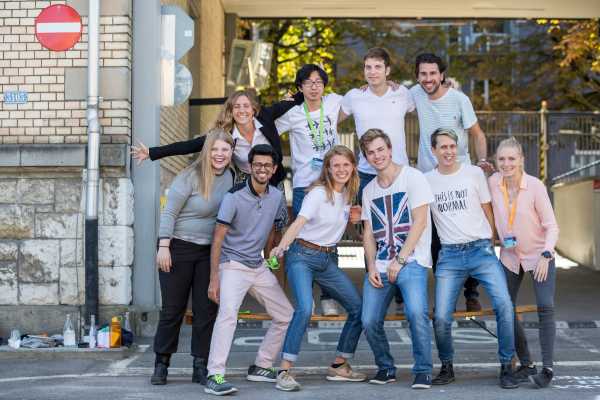 Team 7. As substituting Diesel with hydrogen engines is costly and risky for shipping companies, project H2Ship leases, installs and maintains hydrogen engines and provides a fast and reliable refueling solution at all ports along the Rhine.
Team 7. As substituting Diesel with hydrogen engines is costly and risky for shipping companies, project H2Ship leases, installs and maintains hydrogen engines and provides a fast and reliable refueling solution at all ports along the Rhine.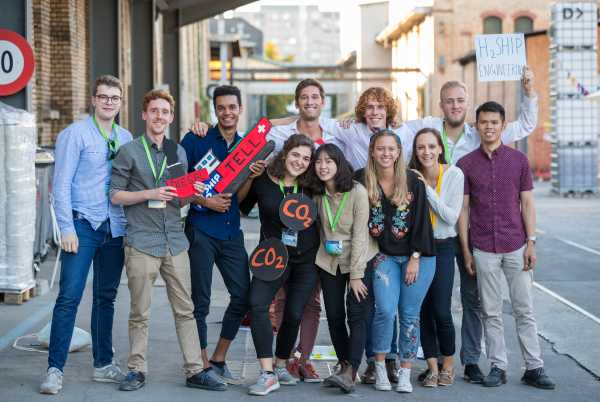 Team 10. To enable conferences without flights but with human contact, project HoloCon suggests holographic conferences: a helmet generates a 3D hologram of the user and provides haptic feedback when interacting with the other user’s hologram.
Team 10. To enable conferences without flights but with human contact, project HoloCon suggests holographic conferences: a helmet generates a 3D hologram of the user and provides haptic feedback when interacting with the other user’s hologram.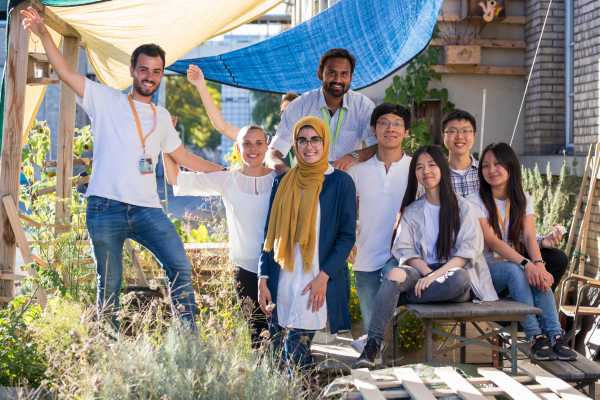 Team 21. Due to greater congestion in Zurich, emergency response times are increased. Project Dronio provides automated drones, distributed throughout the city, that monitor the situation and provide safety equipment until human assistance arrives.
Team 21. Due to greater congestion in Zurich, emergency response times are increased. Project Dronio provides automated drones, distributed throughout the city, that monitor the situation and provide safety equipment until human assistance arrives.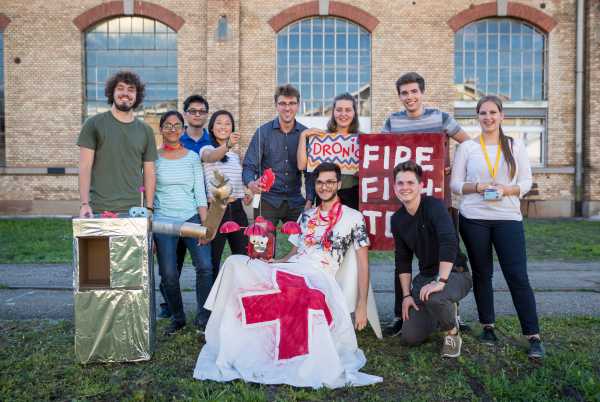 Team 3. The Hermes Project addresses the lack of integrated public transport solutions by proposing autonomous pods powered by batteries, connecting people from point-to-point.
Team 3. The Hermes Project addresses the lack of integrated public transport solutions by proposing autonomous pods powered by batteries, connecting people from point-to-point.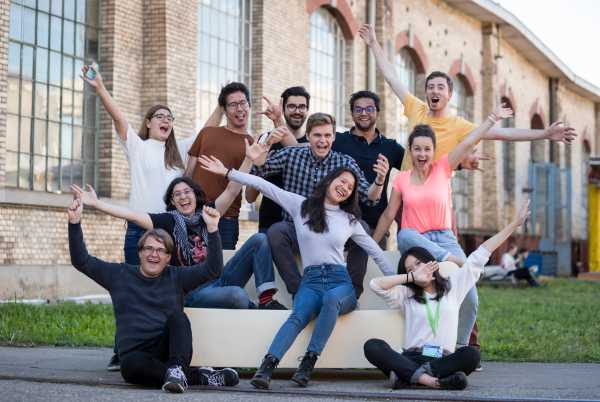
ETH Week 2019 has been organised in close collaboration with external pageSCCER Mobilitycall_made and external pageSBBcall_made (Swiss Federal Railways). We kindly acknowledge the support of ETH Week 2019 through external pageAvina Foundationcall_made and external pageDätwyler Foundationcall_made.
Please download the final report of ETH Week 2019 "Rethinking Mobility" here: Downloadfinal report 2019 (PDF, 1.2 MB)vertical_align_bottom.
Have a look at the Downloadworkbooks (PDF, 3.2 MB)vertical_align_bottom of ETH Week 2019 which guided the students through the entire week.
Impressions of ETH Week 2019 "Rethinking Mobility"
Stay updated and like us on external pageFacebookcall_made.

